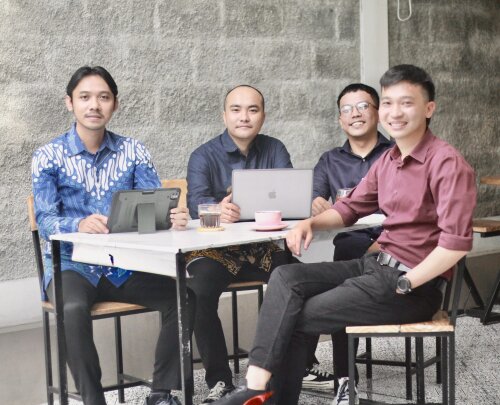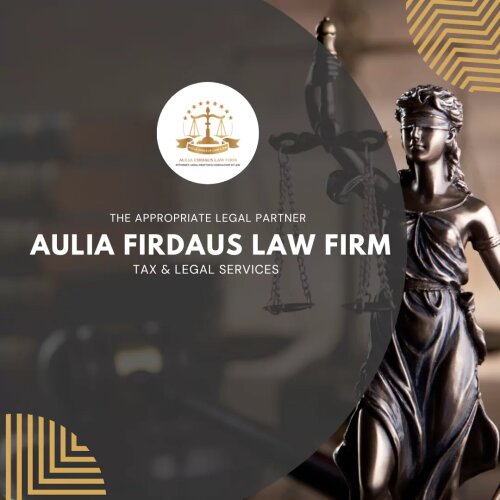Best Real Estate Contracts and Negotiations Lawyers in Jakarta
Share your needs with us, get contacted by law firms.
Free. Takes 2 min.
Free Guide to Hiring a Real Estate Lawyer
List of the best lawyers in Jakarta, Indonesia
About Real Estate Contracts and Negotiations Law in Jakarta, Indonesia
Real Estate Contracts and Negotiations law in Jakarta, Indonesia governs the sale and purchase of real estate properties, including negotiations, contractual agreements, and any possible disputes. Non-indigenous foreign individuals and entities may not generally own freehold property titles but can legally own property through several avenues like leasehold and representative offices.
Why You May Need a Lawyer
Lawyers play a crucial role in the purchase, sale, and rental of real estate properties. They advise on relevant laws and regulations, ensure accurate documentation, aid in negotiations, resolve disputes, and ensure smooth and legal property transactions. Particularly in situations of complex contracts, properties with liens, disputes over property boundaries, or complicated negotiation processes, a lawyer's involvement can prove extremely valuable.
Local Laws Overview
Jakarta real estate law is primarily based on the Basic Agrarian Law (1960) which recognizes several types of land rights but restricts foreign ownership. Foreign direct investment companies (PT PMA), however, can acquire Hak Guna Bangunan (HGB or Right to Build). Any transaction must be registered with the local Land Deed Official (PPAT) to be acknowledged legally.
Frequently Asked Questions
Can foreigners own landed property in Jakarta, Indonesia?
Foreigners, either individuals or legal entities, can own Indonesian property through several channels such as leasehold or Hak Pakai (Right to Use), representative offices, and PT PMA that can hold Hak Guna Bangunan (HGB).
What is the role of a Notary in Jakarta's real estate transaction?
A Notary in Jakarta conducts the due diligence process, verifies the legality of documents, and drafts the Sale and Purchase Agreement (AJB) which is then registered at the local Land Office (Kantor Pertanahan).
What is Hak Guna Bangunan (Right to Build)?
Hak Guna Bangunan (HGB) is a title that gives the right to build on state-owned or freehold land for a specific period. PT PMA can obtain an HGB for up to 80 years.
What if a dispute arises during a property transaction?
If a dispute arises, it should first be solved through negotiations. If that fails, based on the contract aspects, resolutions can be sought through arbitration or through civil court proceedings.
What are the taxes related to property ownership in Jakarta?
There are sanctions in Indonesia for annual land and building tax (PBB) and a tax for the transfer of property (BPHTB). Consult with a tax consultant or a lawyer to understand comprehensively.
Additional Resources
Bodies like the Indonesian Real Estate Association (REI), the Indonesia Investment Coordinating Board (BKPM), and legal service providers can provide assistance and guidance in real estate transactions. Reading and understanding the Basic Agrarian Law and other property-related regulations can also be beneficial.
Next Steps
If you need legal assistance, consider contacting a reputable local lawyer or legal firm experienced in Indonesian real estate law. They can guide in all matters from property searches, due diligence, drafting and reviewing contracts, negotiations, to legal registration of the property.
Lawzana helps you find the best lawyers and law firms in Jakarta through a curated and pre-screened list of qualified legal professionals. Our platform offers rankings and detailed profiles of attorneys and law firms, allowing you to compare based on practice areas, including Real Estate Contracts and Negotiations, experience, and client feedback.
Each profile includes a description of the firm's areas of practice, client reviews, team members and partners, year of establishment, spoken languages, office locations, contact information, social media presence, and any published articles or resources. Most firms on our platform speak English and are experienced in both local and international legal matters.
Get a quote from top-rated law firms in Jakarta, Indonesia — quickly, securely, and without unnecessary hassle.
Disclaimer:
The information provided on this page is for general informational purposes only and does not constitute legal advice. While we strive to ensure the accuracy and relevance of the content, legal information may change over time, and interpretations of the law can vary. You should always consult with a qualified legal professional for advice specific to your situation.
We disclaim all liability for actions taken or not taken based on the content of this page. If you believe any information is incorrect or outdated, please contact us, and we will review and update it where appropriate.
















